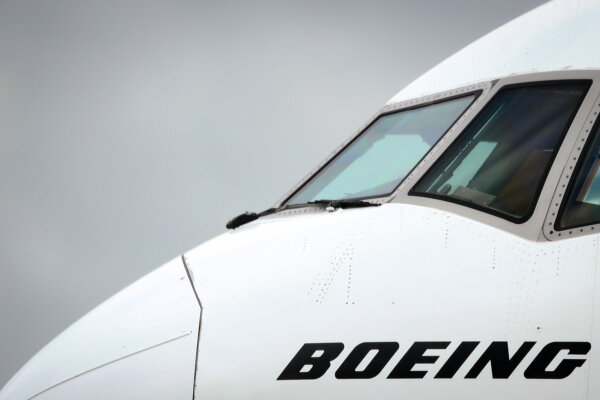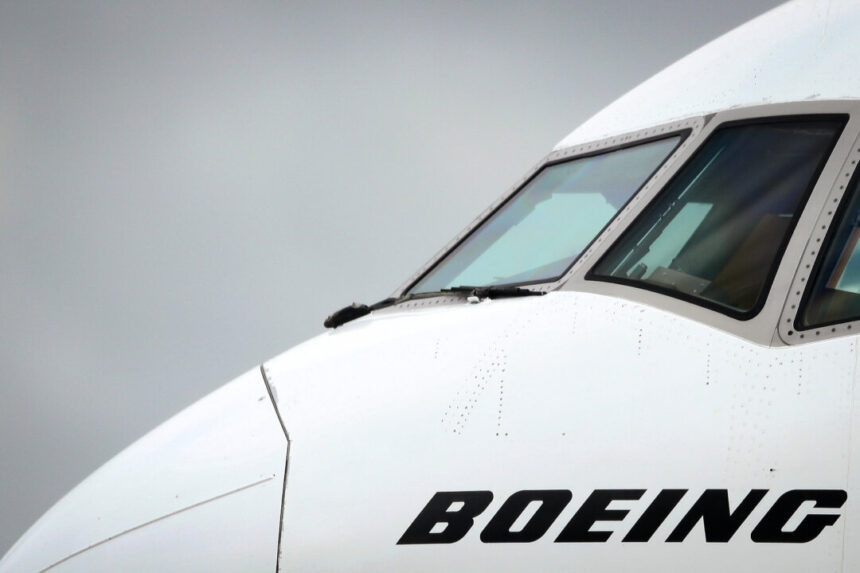
Although airlines have been making efforts to explore sustainable aviation fuel options, the industry is still in its early stages of development.
Boeing, a global aerospace company, is currently working on developing sustainable aviation fuels in Australia as part of the drive towards achieving net zero emissions.
The company, based in Chicago, is collaborating with Wagner Sustainable Fuels to establish a production facility in Brisbane, Queensland.
Sustainable aviation fuels are derived from waste oils, agricultural residues, and non-food crops.
When utilized, renewable fuel is expected to reduce carbon dioxide emissions by up to 84 percent compared to regular jet fuel.
Boeing reports that sustainable fuel currently only makes up 0.1 percent of global jet fuel consumption.
Kimberly Camrass, the sustainability lead for Boeing Australia and New Zealand, stated that the project will aid Australia in meeting its climate objectives.
“By accelerating the local supply of Sustainable Aviation Fuel, Australia can work towards its climate goals and support the global aviation industry’s aim of achieving net zero CO₂ emissions by 2050,” Camrass said.
She also noted that the new Brisbane site for Wagner will enhance Australia’s fuel security, as the country currently imports 90 percent of its liquid fuel, including jet fuel. Demand is projected to increase by 75 percent as 2050 approaches.
Queensland Government Support
The Queensland government has reportedly provided $760,000 for a feasibility study, with the total project cost estimated to be up to $1.7 billion.
Meanwhile, CEO Matt Doyle of Wagner Sustainable Fuels expressed gratitude for the investment from the Queensland government and Boeing, emphasizing that it will establish Australia’s first facility, create local jobs, enhance fuel security, and reduce greenhouse gas emissions from aviation.
Furthermore, in response to Boeing’s announcement, Qantas Chief Sustainability Officer Andrew Parker revealed that the national carrier’s $400 million climate fund is also supporting the project.
“We aim to use 10 percent Sustainable Aviation Fuel by 2030 and have invested in Queensland biofuel production through our $400 million Climate Fund,” Parker stated.
The airline has committed to using 10 percent sustainable aviation fuel by 2030 and 60 percent by 2050.
Conversion of Waste Carbon to Renewable Fuel
The Brisbane facility will utilize technology from U.S.-based companies LanzaTech Global and LanzaJet. The technology, known as CirculAir, converts waste carbon and renewable power into sustainable aviation fuel.
She emphasized the flexibility of the CirculAir platform in unlocking carbon from various waste-based resources in Australia to meet local demand.
LanzaJet CEO Jimmy Samartzis stated that the Brisbane project would position Australia as a frontrunner in the industry.
“By combining LanzaJet’s advanced Sustainable Aviation Fuel solution with LanzaTech’s proven carbon recycling technology, a domestic Sustainable Aviation Fuel supply can be created in Australia using local renewable waste sources,” Samartzis said.
An Emerging Industry
A study released in the journal Renewable Energy on August 9 highlighted that the market for sustainable fuel is currently limited.
The authors pointed out that sustainable fuel production is more costly than traditional jet fuel due to the high refining expenses.
Read more.
The study emphasized that overcoming these challenges would require significant efforts from the aviation industry, including subsidies, incentives, and mandates.





